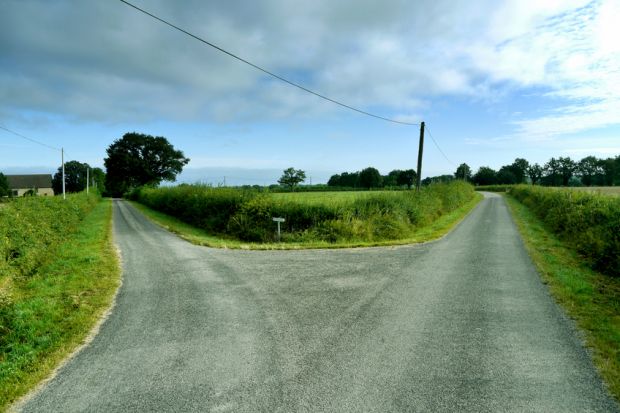The uncertainty facing Australian universities’ planning departments is rising, as the government puts another package of funding reform before parliament.
Uncertainty has been a persistent companion to university admissions planners since 2014, when then education minister Christopher Pyne unveiled plans to deregulate university fees. His reforms were rejected by the senate in December that year and again the following March, before finally being abandoned in September.
When successor Simon Birmingham’s 2017 plan to raise fees by 7.5 per cent appeared headed for a similar fate, he announced the capping of higher education places a week before Christmas – leaving universities with insufficient funds to teach the students they had already accepted for 2018.
A similar dilemma now beckons, as current education minister Dan Tehan races to legislate his “Job-ready Graduates” reforms – a complex package that would see fees raised for some courses and lowered for others, with subsidies also shifting up and down.
The package also introduces new initiatives to boost participation by regional students and encourage universities to work more closely with business. And it includes a raft of measures to stop universities enrolling unsuitable students, in a suite of surprise changes outlined in draft legislation.
Universities and other stakeholders were given six days to provide feedback on the legislation, which Mr Tehan’s office says will be “introduced as soon as practicable” into parliament. Sources expect that to occur in the week commencing 24 August when parliament convenes for a fortnight.
The bill is expected to be referred to a senate committee for an inquiry lasting a month or more, before facing a vote in the senate – where the government does not have a majority – when parliament meets again for three days in the second week of October.
But if a vote is delayed, only three more senate sitting weeks remain before parliament wraps up for the year, with the senate’s legislative workload set to increase after the federal budget is handed down on 6 October.
Covid-19 presents more uncertainty, with parliamentary sittings prone to cancellation at short notice because of coronavirus flare-ups. A sitting scheduled for the first two weeks of August was scratched following a spike of infections in Victoria.
All this means that, as in 2014 and 2017, universities may have to grapple with two different funding possibilities – the new system if the package passes parliament, and the current one if it is rejected or unresolved by year’s end.
“The most problematic scenario is that it does pass but extremely late in the year, so the rules change very suddenly,” said Australian National University policy expert Andrew Norton.
The stakes are arguably higher than in previous years when the government had the option of funding universities under its proposed subsidy rates and reinstating their lost revenue later on if its legislation failed to pass parliament. That approach would be difficult this time, because of the complicated changes to students’ fees.
And in previous years, failed reforms were a problem for the government but less so for universities, which could simply carry on as before. This year is different because status quo funding will leave universities short of capacity to accommodate a spike in the youth population – let alone a massive surge in demand due to the coronavirus-induced recession.
While some sources say the changes are unlikely to be finalised this year, others believe a swift resolution is achievable. The brief period allocated for consultation on the draft legislation demonstrates the government’s intent to act quickly, they say.
But Canberra will have to convince a sceptical senate crossbench. Analysts believe that the government will need the vote of one of three crucial senators – Tasmania’s Jacqui Lambie and South Australia’s Stirling Griff and Rex Patrick – to get the bill across the line.
While none of the three are divulging which way they will vote, Mr Patrick and Mr Griff’s Centre Alliance party have expressed reservations about the reforms. But while universities share these reservations, none of their representative bodies actively opposes the bill.
The Group of Eight, which wants the legislation referred to a senate committee, has come closest to expressing opposition. The other groups – Universities Australia, Australian Technology Network, Innovative Research Universities (IRU) and Regional Universities Network – have recommended amendments to but not rejection of the legislation.
IRU executive director Conor King said universities were taking a “pragmatic” approach to a government that had not changed its “broad mindset” about higher education. “This government has been elected three times,” he said. “We’re endeavouring to do our best to work with that.”




